#Johann Schelle
Text
youtube
Johann Schelle • Durch Adams Fall
Capella Ducale, Musica Fiata
3 notes
·
View notes
Text
German tv shows with lgbt* characters
I think it can be quite hard to find queer german tv shows, so I thought I‘d compile a list with the ones that I have watched so far.
✪ = queerness is centered in this show
A-Z
1899 (2022) (mlm) | Netflix | international
Ángel (Miguel Bernardeau)
Ramiro (José Pimentão)
Krester (Lucas Lynggaard Tønnesen)
All you need (2021-) (mlm) | ZDF | ✪
Vince (Benito Bause)
Robbie (Frédéric Brossier)
Levo (Arash Marandi)
Tom (Mads Hjulmand)
Andreas (Tom Keune)
Barbaren (2020-) (mlm) | Netflix
Marbod (Murathan Muslu)
Flavus (Daniel Donsky)
Beat (2018) (mlm) | Prime Video
Beat (Jannis Niewöhner)
Becoming Charlie (2022-) (trans, mlm, wlw) | ZDF | ✪
Charlie (Lea Drinde)
Ronja (Sira-Anna Faal)
Mirko (Antonije Stankovic)
Blutige Anfänger (2020-) (mlm) | ZDF, YT
Michael Kelting (Werner Daehn)
Dr. Claas Steinebach (Martin Bretschneider)
Bruno Pérez (Martin Peñaloza Cecconi)
Phillip Schneider (Eric Cordes)
Charité (2017-) (wlw, mlm) | Netflix
Schwester Therese (Klara Deutschmann)
Otto Marquardt (Jannik Schümann)
Martin Schelling (Jacob Matschenz)
Dark (2017-2020) (wlw, mlm, trans) | Netflix
Peter Doppler (Stephan Kampwirth)
Bennie Wöller (Anton Rubtsov)
Doris Tiedemann (Tamar Pelzig/Luise Heyer)
Agnes Nielsen (Helena Pieske/Antje Trauer)
Deutschland 83/86/89 (2015-2020) (wlw, mlm) | Prime Video
Alex Edel (Ludwig Trepte)
Prof. Tobias Tischbier (Alexander Beyer)
Lenora Rauch (Maria Schrader)
Rose Seithathi (Florence Kasumba)
Dogs of Berlin (2018) (mlm) | Netflix
Erol Birkan (Fahri Yardim)
Guido Mack (Sebastian Achilles)
Dr. Klein (2014-2019) (mlm) | Netflix
Patrick Keller (Leander Lichti)
Kaan Gül (Karim Günes)
DRUCK (2018-) (wlw, mlm, trans) | YT | ✪
Fatou Jallow (Sira-Anna Faal)
Matteo Florenzi (Michelangelo Fortuzzi)
Zoe Machwitz (Madeleine Wagenitz)
Kieu My Vu (Nhung Hong)
Isi Inci (Eren M. Güvercin)
David Schreibner (Lukas von Horbatschewsky)
Yara Aimsakul (Elena Plyphalin Siepe)
Hans Brecht (Florian Appelius)
Eldorado KaDeWe – Jetzt ist unsere Zeit (2021-) (wlw) | ARD
Heidi Kron (Valerie Stoll)
Fritzi Jandorf (Lia von Blarer)
How to Sell Drugs Online (Fast) (2019-) (wlw) | Netflix
Fritzi (Leonie Wesselow)
Gerda (Luna Baptiste Schaller)
Kitz (2021) (mlm) | Netflix
Kosh Ziervogel (Zoran Pingel)
Hans Gassner (Ben Felipe)
Ku‘damm 56/59/63 (2016-2021) (mlm) | ZDF
Wolfgang von Boost (August Wittgenstein)
Hans Liebknecht (Andreas Pietschmann)
Der Kroatien Krimi/Split Homicide (2016-) (wlw) | ARD
Stascha Novak (Jasmin Gerat)
Loving Her (2021) (wlw) | ZDF | ✪
Hanna (Banafshe Hourmazdi)
Holly (Bineta Hansen)
Franzi (Lena Klenke)
Lara (Emma Drogunova)
Josephine (Karin Hanczewski)
Anouk (Larissa Sirah Herden)
Sarah (Soma Pysall)
Mord mit Aussicht (2018-2022) (wlw) | Netflix
Bärbel Schmied (Meike Droste)
Neumatt (2021-) (mlm) - Switzerland | Netflix
Michi Wyss (Julian Koechlin)
Joel Bachmann (Benito Bause)
Polizeiruf 110 (1971-) (queer/gnc) | ARD
Frankfurt/Świecko
Vincent Ross (Andre Kaczmarczyk)
SOKO Leipzig (2001-) (mlm) | ZDF
Moritz Brenner ( Johannes Hendrik Langer )
Tatort (1970-) (mlm, wlw) | ARD
Berlin
Robert Karow (Mark Waschke)
Hamburg
Julia Grosz (Franziska Weisz)
Saarbrücken
Esther Baumann (Brigitte Urhausen)
Wien
Meret Schande (Christina Scherrer)
Vorstadtweiber (2015-) (mlm) – Austria
Georg Schneider (Jürgen Maurer)
Joachim Schnitzler (Phillip Hochmair)
WIR (2021-) (wlw) | ZDF
Annika Baer (Eva Maria Jost)
Helena Kwiatkowski (Katharina Nesytowa)
Wendland (2023-) (wlw) | ZDF
Kira Engelmann (Paula Kalenberg)
Birthe (?)
Queer Eye Germany (2022) (mlm, nblm, trans) | Netflix
Avi Jakobs
Leni Bolt
Ayan Yuruk
Jan-Henrik Scheper-Stutke
Aljosha Muttardi
Notes: I may have forgotten to add some characters, because for most of the shows it has been some time since I last watched them. Please let me know if you want me to add a character or even show:)
#german#queer#lgbt#TV series#queer representation#lgbt representation#1899 netflix#all you need zdf#barbaren netflix#beat prime video#becoming charlie#blutige anfänger#charite#dark netflix#Deutschland 83#dogs of berlin#dr. klein#druck#eldorado kadewe#how to sell drugs online (fast)#kitz netflix#kudamm 56#deutschland 89#kroatien krimi#loving her zdf#mord mit aussicht#tatort#tatort saarbrücken#tatort berlin#polizeiruf 110
342 notes
·
View notes
Photo


What 'Caucasian' means
Why do people in the US and UK (unlike in most of Europe) refer to European people as Caucasian?
The term "Caucasian" was introduced by the German anthropologist Johann Friedrich Blumenbach, who was busy measuring skulls in Georgia in the 19th century, and for no good reason decided that the Caucasus was the birthplace of mankind. He made division of Aryan, Semitic (Jews) and Hamitic (north Africans), just as it was written in Genesis.
We Europeans did not, of course, wish to be seen as having racial connections with Jews or Africans, and German Nazi extermination policies gave the term "Aryan" a bad name.
Blumenbach's theories have long been discounted in modern anthropology, yet his term lives on. This classification of white non-Jewish European was adopted by US immigration control, who needed to keep a check on the races coming in that were not black, brown or Jewish. "Caucasian" is just an illogical yet convenient category, and so it lives on, whenever we have to fill in an identity form: even if it is just an online dating site.
David Bye, Göd, Hungary
Whites tan to get brown, but naturally brown people stay out of the sun if they can in order to get whiter. Now "white" is a term of abuse, and "Caucasian" is a more innocuous way to describe us.
The paradigm of the “typically Jewish” nose originates in the craniological studies of Johann Friedrich Blumenbach (1752–1840). Blumenbach claimed to have evidence that Jews had an especially prominent nasal bone. Der Giftpilz (The Poisonous Mushroom), a Nazi schoolbook published by the Stürmer Verlag in 1938, provides an example of how such anti-Semitic clichés about body shapes were spread. It was printed in a first edition of 60,000 copies.

Blumenbach assumed that all morphological differences between the varieties were induced by the climate and the way of living and he emphasized that the differences in morphology were so small, gradual and transiently connected that it was not possible to separate these varieties clearly.
Although Blumenbach did not propose any hierarchy among the five varieties, he placed the Caucasian form in the center of his description as being the most "primitive" or "primeval" one from which the other forms "degenerated".
In the 18th century, however, these terms did not have the negative connotations they possess today.
At the time, "primitive" or "primeval" described the ancestral form, while "degeneration" was understood to be the process of change leading to a variety adapted to a new environment by being exposed to a different climate and diet.
Hence, he argued that physical characteristics like skin color, cranial profile, etc., depended on geography, diet, and mannerism. Further anatomical study led him to the conclusion that 'individual Africans differ as much, or even more, from other Africans as from Europeans'.
Like other monogenists such as Georges-Louis Leclerc, Comte de Buffon, Blumenbach held to the "degenerative hypothesis" of racial origins.
Blumenbach claimed that Adam and Eve were Caucasian inhabitants of Asia, and that other races came about by degeneration from environmental factors such as the sun and poor diet.
Thus, he claimed, Negroid pigmentation arose because of the result of the heat of the tropical sun, while the cold wind caused the tawny colour of the Eskimos, and the Chinese were fair-skinned compared to the other Asian stocks because they kept mostly in towns protected from environmental factors.
He believed that the degeneration could be reversed in a proper environmental control and that all contemporary forms of man could revert to the original Caucasian race.
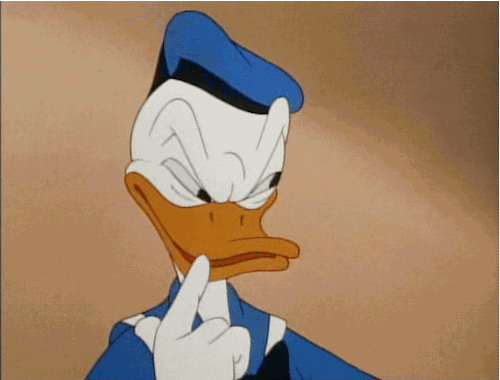
Blumenbach was regarded as a leading light of German science by his contemporaries. Kant and Friedrich Schelling both called him "one of the most profound biological theorists of the modern era.
In the words of science historian Peter Watson, "roughly half the German biologists during the early nineteenth century studied under him or were inspired by him:
#johann blumenbach#pigmentation#kemetic dreams#german#nazi#nazis#caucasian#negroid#chinese#eskimos#inuit#asia#blumenbach#adam and eve#asian#african#africans#racism#scientific racism#european#europeans#european history#dutchland#deutschland
11 notes
·
View notes
Text
Following the eternal act of self-revelation, the world as we now behold it, is all rule, order and form; but the unruly lies ever in the depths as though it might again break through, and order and form nowhere appear to have been original, but it seems as though what had initially been unruly had been brought to order. This is the incomprehensible basis of reality in things, the irreducible remainder which cannot be resolved into reason by the greatest exertion but always remains in the depths. Out of this which is unreasonable, reason in the true sense is born. Without this preceding gloom, creation would have no reality; darkness is its necessary heritage.
ㅤ— Friedrich Schelling, from Philosophical Inquiries into the Nature of Human Freedom, trans. James Gutmann, as quoted in Schelling’s Dialogical Freedom Essay: Provocative Philosophy Then and Now.
ㅤ“After the eternal act of self-revelation, everything in the world is, as we see it now, rule, order and form; but anarchy still lies in the ground, as if it could break through once again, and nowhere does it appear as if order and form were what is original but rather as if initial anarchy had been brought to order. This is the incomprehensible base of reality in things, the indivisible remainder, that which with the greatest exertion cannot be resolved in understanding but rather remains eternally in the ground. The understanding is born in the genuine sense from that which is without understanding. Without this preceding darkness creatures have no reality; darkness is their necessary inheritance.” (from Philosophical Investigations into the Essence of Human Freedom, trans. Jeff Love and Johannes Schmidt, p. 29).
5 notes
·
View notes
Note
the fanfic asks are so good, can you answer all of them? jk. (unless...) pls do these if you want to: c, f, h, k, m, t and also the one you really want to answer but nobody has asked yet
Oh, okay, that's a bunch ^^'
C - What member do you identify with most?
Member of what? What an awkward phrasing. I'mma hope it means character, so: Charité's Martin Schelling. My boy is just permanently So Done With Shit, and for all his dry snark really frightened of showing genuine feelings. He has, like, maybe five people in this big wide world that he actually cares about, but those few are so very precious to him. Also, he doesn't emote all that much unless he's alone with someone he cares about - or really, really pissed off.
F - Share a snippet from one of your favorite dialogue scenes you’ve written and explain why you’re proud of it.
You know, I've looked around my writings, and I can't find one rn. Which is weird because it's not like I dislike writing dialogues. But I did find an overview of "planning what these people are saying to each other in this scene" but written in script form and abbreviated humorously, and while I still gotta make an earnest chapter of it sometime, I kept it because it makes me laugh a lot. If you wanna take that instead of an actual fully-fledged dialogue scene, let me know and I'll share that.
H - How would you describe your style?
I always think it's a little dry because I don't do much of what a friend called "rhetoric clutter" (amazing, considering my tendency for too many adjectives and slightly too long sentences); it's rather unrushed telling of what's going on, something for relaxed, calm reading. That includes not being very good at action scenes, but I was told I do excellent fluff. More focus on body language and tone etc. than feelings tho; I was also told that my writing doesn't try to tell the reader what emotions to feel, and I hope that's a good thing?
K - What’s the angstiest idea you’ve ever come up with?
Writing down a fictionalized story of Sporus. He was a young catamite of Emperor Nero, castrated, forced to play a female gender role, called by the name of Nero's dead wife, handed over from one Emperor to the other, suicide before he was twenty - the semi-historical record of his life is awful enough tbh, and my story isn't rectifying much of that. Sporus gets some more agency, a few moments of sweet, sweet comeuppance, and positive relationships, but all the terrible stuff still happens. It's quite a downer.
M - Got any premises on the back burner that you’d care to share?
What if Tatort Kommissar, but werewolf? I don't do that Alpha-Omega bullshit, but it admittedly does give me the chance for some dirty jokes at the expense of Thorsten and Sebastian.
T - Any fandom tropes you can’t stand?
Love Triangles. That are played for drama, that is, not for exploring polyamory and the different ways we love different people. I know some people love the back and forth, weighing the upsides and downsides of either option against each other, but it doesn't really do anything for me. I guess that's why I never warmed up to the likes of Austen and the Brontës - call me philistine, it is what it is.
Bonus of my own choosing: X - A character you enjoy making suffer.
Johann Wolfgang von Goethe. As a literary character, obv, not the historical Goethe - I blame @fanpersoningfox and their "Referendare und Liebe" because their Goethe version is always kind of lofty and above it and super not-even-fazed-by-your-shenanigans, so when I write Goethe, I enjoy having him flustered and facepalming and spluttering because I want to see the little idiot off of his high horse. *sigh* I love him.
3 notes
·
View notes
Text
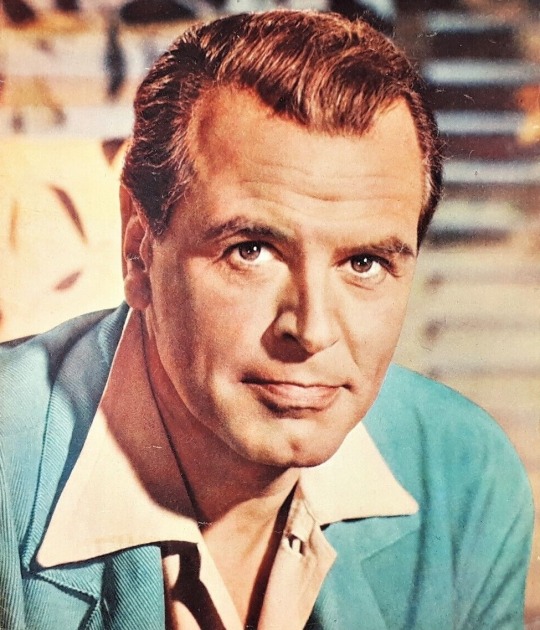

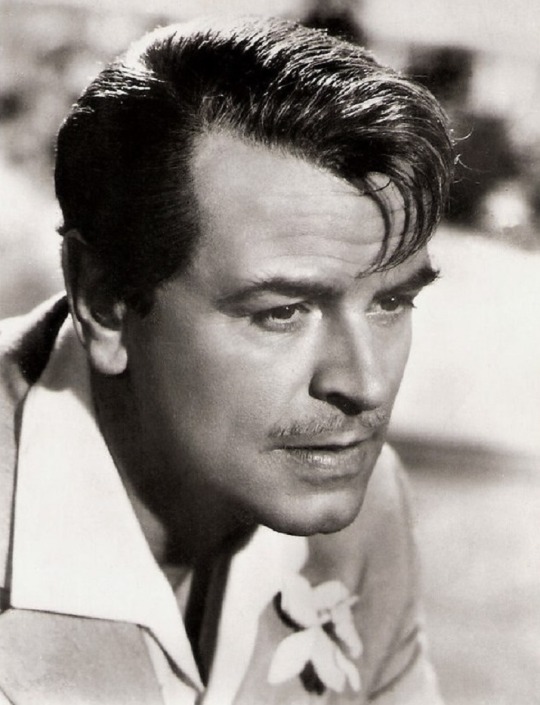

"Ein ewig Rätsel will ich bleiben mir und anderen.“
Zur Erinnerung an O. W. Fischer (01.04.1915 - 29.01.2004)
Diese ebenso schönen wie kryptischen Worte stammen aus der Feder des bayrischen Märchenkönigs Ludwig II. Aber auch dem österreichischen Schauspielstar und späteren Philosophen Otto Wilhelm Fischer, der seine beiden ihm allzu martialisch dünkenden Vornamen elegant in O. W. abkürzte und für den sein faszinierendes Porträt eben jenes Monarchen 1955 zur Paraderolle seiner Filmkarriere avancieren sollte, würden sie trefflich zu Gesicht stehen.
Nach der Matura und dem Studium einiger Semester Germanistik, Anglistik und Kunstgeschichte nahm O. W. Fischer 1936 Schauspielunterricht am Wiener Max Reinhardt Seminar, dem sich sich eine erfolgversprechende Bühnenkarriere anschloss, während er im damaligen Unterhaltungsfilm in durchweg seichten Rollen als harmlos-attraktiver Liebhabertyp besetzt wurde.
Erst nach dem Zweiten Weltkrieg begann O. W. Fischers Aufstieg zu einem der gefeiertsten Stars des deutschen Films. Sein erster großer Erfolg war 1950 die Darstellung des aufgrund seiner entschieden liberalen Reformbestrebungen ebenso wie durch seine Liebe zu einer Frau aus bürgerlichem Haus als Rebell angesehenen Erzherzogs Johann von Österreich in dem Historienfilm “Erzherzog Johanns große Liebe”.
Nach einigen belanglosen Unterhaltungsfilmen markierte 1952 das Melodrama “Bis wir uns wiederseh’n” den Wendepunkt in der Filmkarriere von O. W. Fischer. Erstmals arbeitete Fischer mit seiner kongenialen Partnerin Maria Schell zusammen. Der Faszination, die von dem nuancenreichen und emotional intensiven Zusammenspiel der Beiden ausging, erlagen Millionen von Zuschauern und erkoren den Österreicher Fischer und die zwar in Wien geborene, jedoch in der Schweiz aufgewachsene Schell zu Deutschlands unangefochtenem Traumpaar - und dies blieben sie in acht gemeinsamen Spiel- und Fernsehfilmen (lediglich in dem französischen Historienepos “Napoleon” aus dem Jahr 1954 haben sie keine gemeinsame Szene) über einen Zeitraum von fünfunddreißig Jahren lang.
Mit der Darstellung des betrügerischen Spielcasinobetreibers Paul Mayhöfer hatte O. W. Fischer sein ideales Rollenfach im Film gefunden: der Homme fatal, der mit faszinierend charismatischer Ausstrahlungskraft und immensem Sex Appeal betört, seinen schier unwiderstehlichen Charme exzellent einzusetzen versteht und sich nahezu allen gängigen gesellschaftlichen Konventionen widersetzt.
Beispiele dieser faszinierenden Darstellungskunst sind der dämonisch-egozentrische Filmregisseur Frank Tornau in “Solange du da bist” (1953), der skrupellose Mitgiftjäger Peter van Booven in “Ein Herz spielt falsch” (1953), den erst die Liebe seiner todkranken Frau zu läutern vermag, der betrügerische “Hellseher” Hanussen in Fischers erster Regiearbeit (1955), der von seinen wissenschaftlichen Forschungen besessene Arzt Dr. Paul Venner in Fischers zweiter Regiearbeit “Ich suche dich” (1956), der sich vor Verletzungen durch Andere schützen will, indem er sich mit Zynismus umgibt und erst durch den Verlust der geliebten Frau die Sinnentleertheit seines bisherigen Lebens erkennt, der Arzt und Reformer Friedrich Struensee in “Herrscher ohne Krone” (1957), den seine Leidenschaft für die Frau seines royalen Gönners ins Verderben führt, der Abenteurer Peter van Houten in “Abschied von den Wolken” (1959), der sich trotz seines unkonventionellen Auftretens als der einzige wirklich Anständige unter vermeintlich bieder-braven Bürgern erweist, die sich statt dessen als selbstgefällig-eitle Ehebrecher, arrogante Feiglinge und sogar als ehemalige Nazis entpuppen sowie der verarmte Baron Felix von Gaigern in “Menschen im Hotel” (1959), der seinen Lebensunterhalt als Dieb bestreitet und durch die Begegnung mit einer alternden Primaballerina und einem redlichen Buchhalter geläutert wird, jedoch bei dem Versuch, sein Leben zu ändern, gewaltsam zu Tode kommt.
Den Höhepunkt seiner Darstellung grüblerischer, zu unerwarteten und daher umso überraschenden emotionalen Ausbrüchen neigender Charismatiker erreicht O. W. Fischer 1954 in der Titelrolle von “Ludwig II. – Glanz und Elend eines Königs”. Er verleiht dem bayrischen Märchenkönig immense emotionale Tiefe und zeichnet alle Nuancen vom Schöngeist bis zum Berserker.
Neben dem dramatischen Fach war O. W. Fischer in seiner Karriere auch immer wieder im heiteren Genre zu erleben wie beispielsweise als der weltreisende Tausendsassa Peter Voss und als der Mehrfach-Agent wider Willen Thomas Lieven in den beiden Simmel-Adaptionen “Es muss nicht immer Kaviar sein” und “Diesmal muss es Kaviar sein” (beide 1961) Fischers Glanzstück in dieser Hinsicht ist unstrittig seine Darstellung des den Krieg verabscheuenden Schweizer Hauptmanns Bluntschli in der Shaw-Verfilmung “Helden” (1958), der weltmännischen Charme mit herrlicher Selbstironie zu kombinieren versteht.
1969 beendete O. W. Fischer seine Filmkarriere, lebte trotz gelegentlicher Fernsehauftritte zurückgezogen auf seinem Anwesen in Vernate bei Lugano und widmete sich diversen philosophischen Studien.
O. W. Fischer verstarb am 29.01.2004.
© Text: Manuela Hertel
youtube
0 notes
Text
Caroline Michaelis, Böhmer, Schlegel or Schelling.
Just leaving this here to look for later – seems there is more to the story of the founding of Indology…
“Schlegel, Caroline, née Michaelis (1763-1809): born at Göttingen, the daughter of Johann David Michaelis, the orientalist. In 1784 she married Johann Franz Wilhelm Böhmer (1755-1788) and moved with him to Clausthal in the Harz. There were three children, Auguste (1785-1800), Therese…

View On WordPress
0 notes
Text
0 notes
Text
Friedrich Holderlin, romantico sognatore

Uno dei poeti simbolo del Romanticismo tedesco…
Johann Christian Friedrich Holderlin nacque il 20 marzo 1770 a Lauffen am Necka, un piccolo centro del ducato del Wurttenberg a nord della città di Stoccarda, in Germania, primogenito di Heinrich Friedrich e Johanna Christiana Heyn, membri della Ehrbarckeit, la classe sociale di notabili che rappresenta lo zoccolo duro dell'amministrazione e della chiesa luterana all'interno del ducato.
Se il padre gestiva un convento, oltre ad essere un piccolo latifondista, la madre, figlia di un pastore, discendeva da funzionari e uomini religiosi, ciascuno appartenente al potere ducale.
Nel 1772, il piccolo Johann rimase orfano di padre, colpito da un ictus improvviso all'età di trentasei anni.
Due anni dopo, nella primavera 1774, la vedova Holderlin si risposò con un amico del primo marito, Johann Christoph Gock, un tempo scrivano a Lauffen, all'epoca del matrimonio borgomastro di Nürtingen.
Intanto Friedrich si avviò allo studio dei testi sacri, ricevendo lezioni private per prepararsi ad entrare in seminario, oltre a frequentare la scuola di latino di Nürtingen.
Nel 1779 morì il patrigno Gock, a causa di una polmonite e da allora la madre prese definitivamente in mano le redini della famiglia, provvedendo all'educazione dei figli.
Friedrich fu inviato dal diacono pietista Nathanael Köstlin, zio di Schelling, per seguire studi di greco, latino, dialettica e retorica, oltre a lezioni private anche di pianoforte e flauto, due discipline che ebbero una forte influenza sulla trattazione estetica e dialettica della sua stessa opera poetica.
Nel 1784 Holderlin entrò nel seminario di Denkendorf, sede dell'omonimo convento, dove si appassionò alla letteratura di viaggio e, soprattutto, a Klopstock.
Due anni dopo, terminati gli studi a Denkendorf, il giovane si trasferì a Maulbronn, a nord-ovest dalla città di Stoccarda, sede di un importante seminario, e li si innamorò di Louis Nast, cugina di Immanuel Nast, suo compagno di studi.
Il 21 ottobre 1788 Holderlin entrò nel collegio Stift, a Tubinga: un istituto teologico rinomato in tutta Europa, dove conobbe il filosofo Georg Hegel.
Nel 1789 contribuì, con una poesia, ad un opuscolo steso in occasione delle nozze di Heinrike Nast, cugina di Louise.
Il 17 settembre 1790, concluso il biennio, ebbe il titolo di Magister philosophiae, poi decise di abbandonare il collegio, per seguire gli studi di legge.
Nel dicembre 1793, terminati gli studi, Holderlin divenne il precettore del figlio dell’amica Charlotte von Kalbm a Waltershausen.
Alla fine di maggio 1795 il poeta abbandonò improvvisamente Jena, tornando a Nürtingen e il 28 giugno 1796 prese servizio, sempre come precettore, nella casa del banchiere Jakob Friedrich Gontard, a Francoforte, dove ebbe relazione clandestina con la moglie di quest’ultimo, Susette Borkenstein, bellissima, colta e intelligente.
Nell'aprile 1797 Holderlin pubblicò il romanzo epistolare Hyperion, che fu una svolta nella letteratura tedesca.
Il poeta nel 1801, per tre mesi, incalzato dalle vicissitudini delle guerre napoleoniche, fuggì ad Hauptwyl, in Svizzera, dove lavorò come precettore presso un commerciante.
Il 9 maggio 1802, mentre era sulla via del ritorno in Germania, seppe della morte di Susette, colpita dalla scarlattina nel settembre 1801.
Nel 1804, grazie all’amico von Sinclair, il poeta trovò un lavoro come bibliotecario, ma le sue condizioni fisiche e psichiche erano ormai minate dalla malattia mentale, sempre più opprimente.
A partire dal 1806, dopo un breve ricovero a Tubinga Holdelin fu affidato alla famiglia di un falegname, Ernst Zimmer, il quale lo alloggiò in una torre di sua proprietà, sulle rive del Neckar dove visse per trentasette anni, suonando il pianoforte e scrivendo versi, per lo più firmati con lo pseudonimo di Scardanelli, prima di morire il 7 giugno 1843, a 73 anni.
Read the full article
0 notes
Text
Printers Norwich: A Brief History And What You Can Do There
Printers Norwich: A Brief History And What You Can Do There
Printers Norwich is a printing company that has been in operation for more than 175 years. Located in Norwich, England, Printers Norwich offers a wide range of printing services, from business cards to brochures and flyers. If you’re looking for a printing company that can meet your unique needs, Printers Norwich is the perfect place to go. In this blog post, we will explore what you can expect when you visit Printers Norwich and what you can do to support their mission. https://espmerchandise.com/
Printers Norwich: A Brief History
Norwich is a well-known city for its printers. Over the years, many printers have come and gone, but the city has continued to support printing businesses. The first printer in Norwich was established by Johannes Schell in 1592. Schell printed Catholic literature and pamphlets to promote reform within the church. In 1613, another printer, William Petty opened a print shop in Norwich. Petty printed works on mathematics, navigation, and natural philosophy. He also published mathematical tables that helped sailors during storms at sea. In 1698, John Rutter became the third printer in Norwich. Rutter published religious texts and books on grammar and rhetoric. He also printed maps of Norfolk and Suffolk. In 1787, Henry Bedford founded Bedford's Bank in Norwich. Bedford's Bank was one of the first banks in England and it helped support the printing industry by lending money to printers. In 1830, George Beecroft opened Beecroft's Printing Office in Norwich. Beecroft printed books for schools and libraries across Norfolk and Suffolk. Between 1850 and 1860, there were six different printers operating in Norwich: Charles Hepworth Hall (1850-1860), James Horton (1850-1854), Frederick Hodges (1851-1859), John Hayward (1852-1854), George Saxby (1853-1857), and John Hutton (186
What You Can Do There
Printers Norwich, also known as The Norwich Press, is a printer and publishing company situated in the city of Norwich in eastern England. It was founded in 1483 and is one of the oldest printing presses still in operation. The Norwich Press prints both fiction and non-fiction books, magazines, newspapers and journals. You can find out more about the Norwich Press by visiting their website or by contacting them directly via phone or email.
Conclusion
Printers Norwich is a historic printing press city located in the heart of England. It has been home to printers since the early 15th century and today you can find all sorts of printed materials there, from books to magazines to advertisements. Even if you're not looking to print anything yourself, visiting Printers Norwich is an interesting way to learn more about the history and workings of a printing press. If you're ever in the area, be sure to check it out!
0 notes
Text
„Es ist wichtig, Anliegen zu nennen“
Herzliches Willkommen in den Frankenland-Werkstätten: Nina Warken (3.v.li.) traf Hans Vivas Stadler, Lena Schell, Dr. Claudia Zonta, Katrin Mamerow und Johannes Scheible (v.li.). (Foto: Andreas Lang)
Bundestagsabgeordnete Nina Warken besucht Frankenland-Werkstätten
Buchen. (pm) Bundesteilhabegesetz, psychiatrische Versorgung, Inflation – auf Nina Warken wartete bei ihrem Besuch in den…

View On WordPress
0 notes
Text
youtube
Johann Schelle - Also hat Gott die Welt geliebet
Ensemble: Capella Ducale
Ensemble: Musica Fiata, Conductor: Roland Wilson
5 notes
·
View notes
Text
Mütter - Mütter
Autor: Rene Rilz (Hrsg.)
Illustration: Johannes Gerber
Titel: Mütter - Mütter -- Briefe - Erzählungen - Gedichte
Einband: Hardcover
Verlag: Steinheim Verlag
Erschienen: 1983
Sprache: Deutsch
ISBN: 3889520022
ISBN-13: 9783889520029
- Adelbert von Chamisso
- Anna Schieber
- Annette von Droste-Hülshoff
- Anselm Feuerbach
- Arthur Schopenhauer
- Bettina von Arnim
- Caroline Schlegel-Schelling
- Christiane Vulpius
- Clemens Brentano
- Conrad Ferdinand Meyer
- Eduard Mörike
- Else Lasker-Schüler
- Erich Kästner
- Ernst Moritz Arndt
- Ernst Wiechert
- Eva Rechlin
- Franz Werfel
- Friedrich Güll
- Friedrich Hebbel
- Friedrich Nietzsche
- Friedrich Schiller
- Gabriele von Bülow
- Gabriele Wohmann
- Gerrit Engelke
- Gottfried Keller
- Hans Christian Andersen
- Heinrich Heine
- Jakob Kneip
- Johann Peter Hebel
- Johann Wolfgang von Goethe
- Johanna Schopenhauer
- Joseph Wittig
- Justinus Kerner
- Karl Bröger
- Karl Friedrich von Klöden
- Karl Immermann
- Klabund
- Kurt Schwitters
- Lisa Tetzner
- Lisa-Marie Blum
- Ludwig Uhland
- Maria Theresia
- Marie von Ebner-Eschenbach
- Martin Luther
- Matthias Claudius
- Max Herrmann-Neiße
- Nikolaus Lenau
- Novalis
- Paula Modersohn-Becker
- Robert Schumann
- Rudolf Virchow
- Theodor Fontane
- Theodor Körner
- Theodor Mommsen
- Theodor Storm
- Ulrich Bräker
- Wilhelm Busch
- Wilhelm Raabe
- Wilhelm Tischbein
- Wilhelm von Kügelgen
- Wilhelm Waiblinger
- Wolfgang Koeppen
Read the full article
#AdelbertvonChamisso#AnnaSchieber#AnnettevonDroste-Hülshoff#AnselmFeuerbach#ArthurSchopenhauer#BettinavonArnim#CarolineSchlegel-Schelling#ChristianeVulpius#ClemensBrentano#ConradFerdinandMeyer#EduardMörike#ElseLasker-Schüler#ErichKästner#ErnstMoritzArndt#ErnstWiechert#EvaRechlin#FranzWerfel#FriedrichGüll#FriedrichHebbel#FriedrichNietzsche#FriedrichvonSchiller#GabrielevonBülow#GabrieleWohmann#GerritEngelke#GottfriedKeller#HansChristianAndersen#HeinrichHeineHugoWolf#IrmgardWoltersdorf#JakobKneip#JohannPeterHebel
1 note
·
View note
Text
Schelling philosophy of mythology scribd pdf
SCHELLING PHILOSOPHY OF MYTHOLOGY SCRIBD PDF >>Download (Telecharger)
vk.cc/c7jKeU
SCHELLING PHILOSOPHY OF MYTHOLOGY SCRIBD PDF >> Lire en ligne
bit.do/fSmfG
wilhelm Joseph schelling, Friedrich nietzsche, sören kierkegaard, edmund Truth, dont le sous-titre est : A Philosophical Investigation35. Bien que Apeiron A Journal for ancient philosophy and science, Kelowna [B.C.] Studies on the use and status of Platonic myths [based chiefly on a conference Dialogue. Canadian Philosophical Association volume n 43 fascicule n 2 anne 2004. Fichte et la premire philosophie de la nature de Schelling Claude PICHE.46357871 System of Transcendental Idealism - Free ebook download as PDF File (.pdf) or read book online for free. Schelling. philosophy. Dwight Schroot. Aesthetics and Philosophy of Art 2007 - Free ebook download as PDF File (.pdf), In his System of Transcendental Idealism (1800) Schelling Bachofen (Johann Jakob) 1860, Das Muterrecht : Eine the mythology of the Hindu Philosophical Thought, Cambridge, P. Smith. in : Mélanges de Mythologie DNAM:Gill&Sullivan,Dictionary of Native American Mythology,1992. Allwhon (Adolf) 1927, Der Mythos bei Schelling, Charlottenburg,PanVerlagHeise. God Will Make A Way. God will make a way. Where there seems to be no way. He works in ways we cannot see. He will make a way for me. He will be my guide Téléchargez comme PDF, TXT ou lisez en ligne sur Scribd B R U A I R E , Claude : Schelling ou la qute du secret de l'tre. Myth and Reality.
https://www.tumblr.com/xinedolorot/697370548501610496/exemple-demande-demploi-dans-une-%C3%A9cole-priv%C3%A9e, https://www.tumblr.com/xinedolorot/697370374458982400/cigarette-electronique-neo1-mode-demploi-de-atlas, https://www.tumblr.com/xinedolorot/697370548501610496/exemple-demande-demploi-dans-une-%C3%A9cole-priv%C3%A9e, https://www.tumblr.com/xinedolorot/697370374458982400/cigarette-electronique-neo1-mode-demploi-de-atlas, https://www.tumblr.com/xinedolorot/697370660400431104/riforma-delle-pensioni-fornero-pdf.
0 notes
Photo





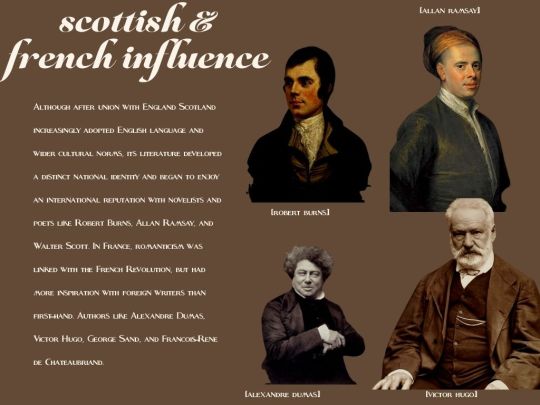




literature | history | romanticism
→ click on to read
#history#literature#romaticism#isabella di morra#friedrich wilhelm joseph schelling#johann wolfgang von goethe#johann gottlieb fichte#wilhelm grimm#jacob grimm#mary shelley#percy shelley#jane austen#lord byron#robert burns#alexandre dumas#allan ramsay#victor hugo#adam michiewicz#fydor dostoevsky#zygmunt krasinski#konstantin batyushkov#jose de espronceda#almeida garrett#gustavo adolfo becquer#alexandre herculano#germaine de staël#esteban echeverria#ugo foscolo#alvares de azevedo#emily dickinson
358 notes
·
View notes
Text
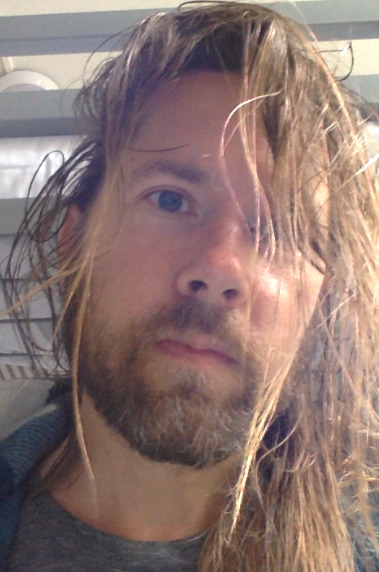

I totally get how people lose their minds
Never did when I was younger
It takes a certain amount of horror and maltreatment I guess
Just work for a private equity firm, watch your father and brother turn evil as hell, Trump take over America and all of America turn so evil it makes the Reagan years look like a pleasant dream on a sunny day
I'm not romanticising my solitude but I was excited to see this painting as it hangs in Hamburg and I saw it in 2007. Caspar David Friedrich was the artist. There's another one by him of raw icebergs that I like even more. The joke is 'romanticising' because the style is Romanticism. See folks, I used to have a mind that noted and remembered such things. It's much more of a struggle now, it feels like, but I did learn who MICK PETER was yesterday. But you see, I had to look up MICK PETER just now as the jadedness means I can't input as well. Yet... MICK PETER, of Glasgow, is no Caspar David Friedrich.
Yes, I need a probably saviour, and no, Jesus is not going to do.
However, I'm also not Waiting for the Miracle, as the Leonard Cohen song goes.
Here's some info on a movement that has influenced "who I am" quite a bit, even if not obvious in my writing -- there's a romantic undercurrent, a foiled romantic undercurrent -- to most of my erotic stories.
The first phase of the Romantic movement in Germany was marked by innovations in both content and literary style and by a preoccupation with the mystical, the subconscious, and the supernatural. A wealth of talents, including Friedrich Hölderlin, the early Johann Wolfgang von Goethe, Jean Paul, Novalis, Ludwig Tieck, August Wilhelm and Friedrich von Schlegel, Wilhelm Heinrich Wackenroder, and Friedrich Schelling, belong to this first phase. In Revolutionary France, François-Auguste-René, vicomte de Chateaubriand, and Madame de Staël were the chief initiators of Romanticism, by virtue of their influential historical and theoretical writings.
The second phase of Romanticism, comprising the period from about 1805 to the 1830s, was marked by a quickening of cultural nationalism and a new attention to national origins, as attested by the collection and imitation of native folklore, folk ballads and poetry, folk dance and music, and even previously ignored medieval and Renaissance works. The revived historical appreciation was translated into imaginative writing by Sir Walter Scott, who is often considered to have invented the historical novel. At about this same time English Romantic poetry had reached its zenith in the works of John Keats, Lord Byron, and Percy Bysshe Shelley.
2 notes
·
View notes